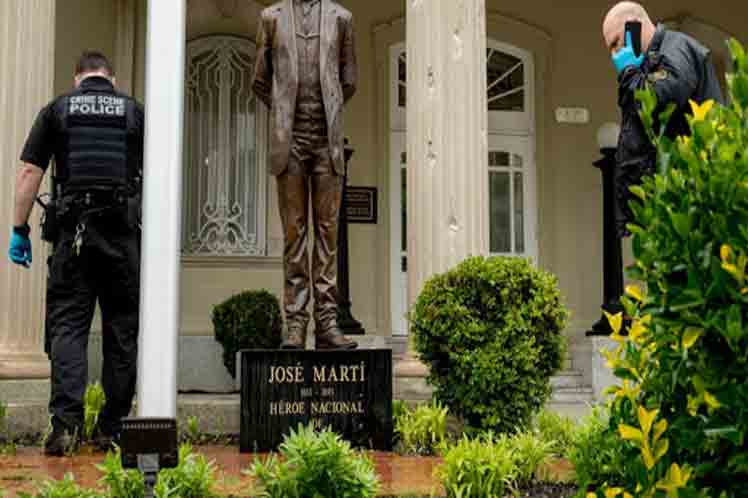Cuba’s Foreign Ministry has repeatedly denounced the dangers of that attitude, as it encourages the execution of similar actions by violent individuals or groups that operate on US territory.
On April 30, 2020, at dawn, a citizen of Cuban origin, Alexander Alazo, shot 32 projectiles of a semiautomatic rifle at the Cuban Embassy in Washington, endangering the lives of ten officials who were in the building at the time.
Luckily, no one was hurt during the attack, only the diplomatic building had some damage; however, the White House remained silent instead of condemning the aggression, which has been described as serious by Cuban authorities.
Last year, Cuban Foreign Minister Bruno Rodriguez noted that that attitude turns the US administration into an accomplice of the event.
He noted that the terrorist act was the direct result of Washington’s policy of aggression and hatred against Cuba, as well as the permanent instigation of violence by US politicians, including top officials at the Department of State.
The Cuban Foreign Ministry insisted that the silence on this case could become an incentive for those who identify the diplomatic missions as targets for violent attacks.
A year later, the US has not condemned those actions yet, while groups and individuals with a history of terrorist attacks against Cuba continue to operate with impunity in that country.
jg/mem/kmg









